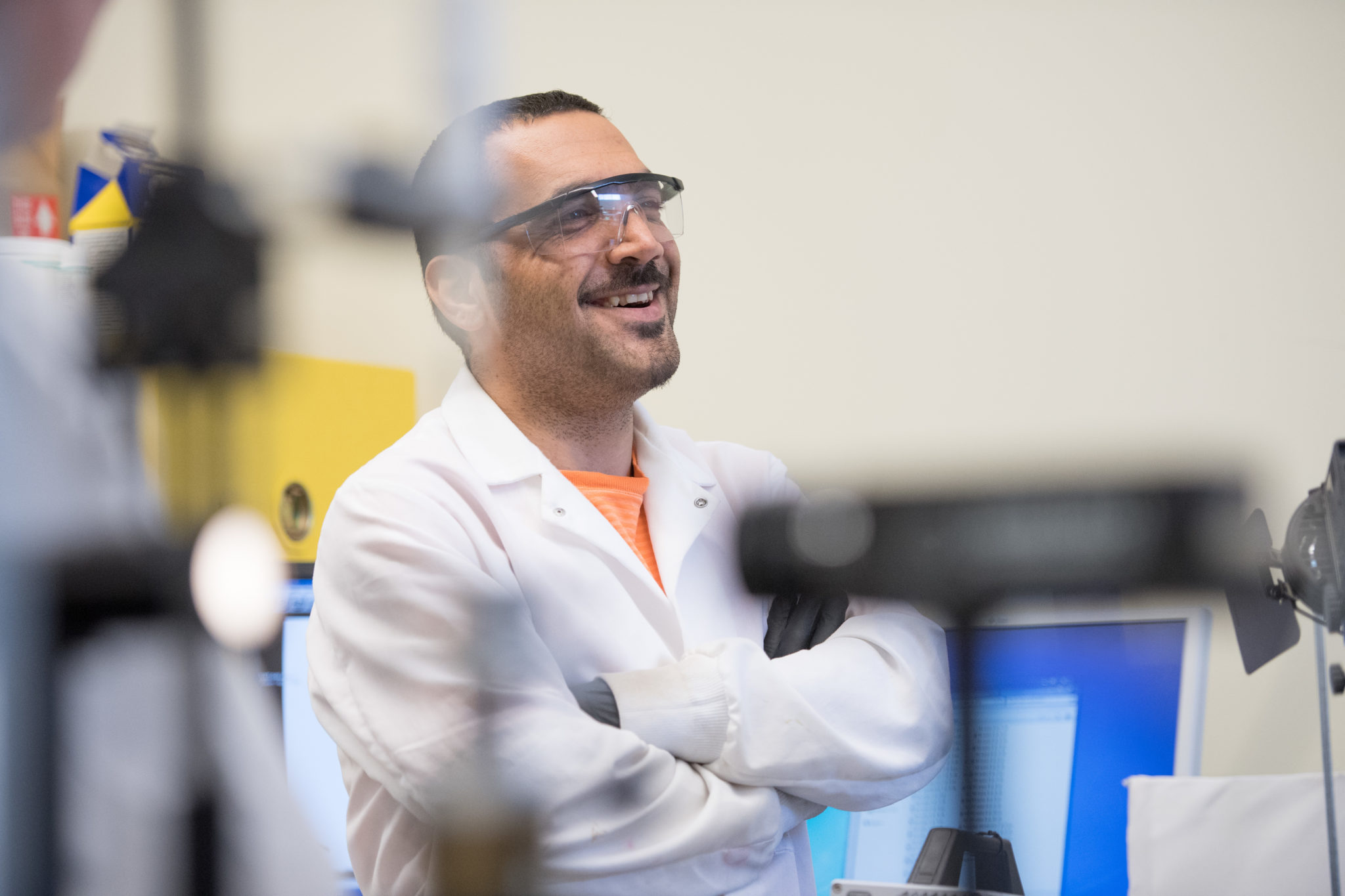
Department of Mechanical Engineering graduate research assistant Hamed Vahabi has had immense success in his research findings since joining Assistant Professor Arun Kota’s lab four years ago.
Vahabi’s research is so impactful, that over a period of four years, it has resulted in one patent, 13 appearances at national and international conferences, six Ph.D. awards and scholarships, eight prestigious journal articles, six manuscripts under review, and several other accolades.
Most recently, Vahabi won the ACS Excellence in Graduate Polymer Research Award and the Poly 2018 Graduate Student Travel Award, for his innovations in polymer-based functional surfaces. He was also featured as a standout member in the American Chemical Society e-newsletter.
Polymer surfaces and coatings
Vahabi’s research strengths include fundamental understanding and experimental development of polymer-based functional surfaces and coatings. Using such coatings, he can manipulate the interaction of thermo/bio-fluids with solid surfaces, which in turn can improve the performance of equipment and devices in contact with thermo/bio-fluids.
Vahabi’s background is a combination of academia and industry, giving him an edge in his research goals. He received his bachelor’s in mechanical engineering, specializing in thermo-fluids, from the University of Gilan in Iran, and his master’s in mechanical engineering, specializing in solid mechanics and vibrations, from the University of Tehran in Iran. Following that, he joined industry, where he focused on everything from the design of power boilers and pressure vessels, to numerical simulation of HVAC in subway stations, as well as thermal hazards in power/petrochemical plants. He joined Kota’s lab at CSU in January 2015.
Long-term plans
“In the long term, I plan to pursue a career in academia, where I intend to combine my experimental expertise in interfacial materials with prior extensive experience in thermo-fluids to pursue multidisciplinary research in the fields of surface science, heat transfer, fluid mechanics, and also biomedical engineering,” said Vahabi.
Vahabi hopes that the surfaces he fabricates will have a wide range of industry applications, including drag reduction in naval vessels; ultra-high fouling-resistance in clot-free bio-implants; sustained dropwise condensation in ultra-efficient thermal units; sustainable and non-toxic materials for packaging; and controlled flow-induced vibration in offshore structures.